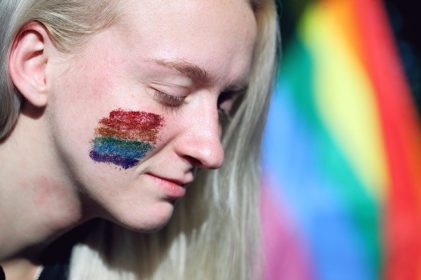Last Updated on October 12, 2025 by Michelle Ball
If a student has faced discrimination in their school or college, the student or their parent may want to file a complaint with the United States Department of Education, Office for Civil Rights (OCR) to get their school investigated and corrected. Simple.
Not so fast.

Doesn’t OCR Take All Complaints Filed?
NO.
It’s simple to file with OCR, but not simple to get a student discrimination complaint accepted by OCR, such that OCR actually investigates the school or college where the student discrimination is occurring.
OCR does not take every student complaint that floats their way. Instead, to be accepted, submissions must clearly lay out a true case of discrimination or retaliation. Otherwise, an OCR filing may be rejected and the school issues stay unresolved.
Prepare Your OCR Complaint Thinking Like an Attorney
When preparing to file an OCR discrimination claim, parents and students need to think like lawyers. What does this mean? Well, what do student attorneys gather to prove their discrimination cases? Statements or summaries from witnesses, documents clearly proving the facts of what occurred to the student, reports from authorities, and/or anything that legitimately and clearly shows clear evidence of wrongdoing towards the student.
Timelines and Facts Are Important

A very good timeline and description of the student’s facts, without a lot of emotion or guessing, is important for OCR to understand what the parent or student believes is occurring. The student’s summary should describe what happened, who is believed to have done what, and specifics, such as the time, date, location, and people alleged to have been involved in the school or college discrimination. This summary can be attached to or inserted into the initial OCR complaint form.
What Other Evidence Can Help?
A parent or student also needs to attach all evidence they gathered proving what occurred. Does the student have email from a teacher showing discrimination is going on, or a picture of events, or a report card that shows the student’s school issues? Does a parent have letters to the school, texts with details, or even letters or statements from real witnesses? If so, these should be forwarded to OCR with the initial student complaint if possible.
Good Versus Not So Good Parent Statements
What parents say in the OCR complaint matters.
An example of a poor statement by a parent could be:
“My son was discriminated against by X school on the playground.” [not so good]
versus

“On February 1, 2021, my son was with a group of boys at X school during lunch, who all stole money together and none of them have past discipline incidents. My son has ADHD and is in special education and the other four boys are not. My son is the only boy who was suspended and the Principal called him a “waste of special education money” when he suspended him, which was witnessed by the school secretary Madge who emailed me (see attached email, suspension form, and my son’s summary of what happened written immediately afterwards). Last month the lady in the lunch room told my son she hated special ed kids and put him at the end of the lunch line” [much better]
It is clear when reviewing the two descriptions of the same student situation, that one is more convincing than the other, as it has specific facts and documents backing the claims attached. This is the way to approach an OCR filing to try to get them to investigate the discriminating school or college.
File With OCR When Needed
So get gathering the facts and proof and get filing OCR complaints where needed. Schools don’t want to hear from OCR, as OCR can make their lives difficult and can even cut school funding.
If enough students and parents filed discrimination claims, schools and colleges would change for the better and all students would face a more tolerant environment in the future.
Student discrimination and expulsion lawyer Michelle Ball assists students bullied, lacking special education support, and with other school difficulties. As an education attorney in Sacramento, California, Michelle Ball can help in San Francisco, Mendocino, Fort Bragg, Roseville, Colfax, Clovis, Santa Barbara, Los Angeles, and many other locations.
Recommended Reading: Appealing a Bad OCR Decision

